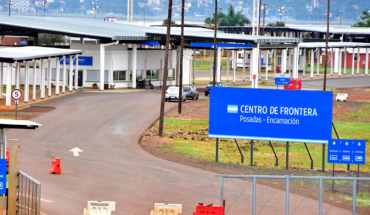Less than a month and a half before the exit plebiscite on September 4, where citizens will choose whether or not to approve the new Magna Carta prepared by the Constitutional Convention, the President of the Republic, Gabriel Boric, said that in case the Rejection is imposed, the 1980 constitution should not continue.
This, since “it does not represent a social agreement in Chile”, but that, “there has to be a new constituent process” and, for that, a new election of conventional ones must be called.
You may also be interested in:
“Not being sure what will happen in a month and a half influences uncertainty. And it is legitimate to support either option. I approve or Reject. What we have to ask ourselves is what’s going to happen the day after. Chile voted clearly in a plebiscite that it wants a new Constitution, and not only that, written by a body specially elected for that purpose. Therefore, if the Rejection alternative wins, we will have to prolong this process for another year and a half,” said the President in conversation with Chilevisión.
These statements generated various reactions from the political world, being the Minister of the Segpres, Giorgio Jackson, and the Government spokeswoman, Camila Vallejo, who addressed the “road map” set by the head of state in case the proposal for a new Fundamental Charter is not approved.
Given this, Vallejo agreed on the existence that “there is a popular mandate to have a new Constitution and with people democratically elected for those purposes exclusively.”
The “insistence on respecting the popular mandate is a priority,” he added.
Meanwhile, the head of the Segpres, Giorgio Jackson, said that “the President at least what he has proposed is that on October 25, 2020, there was a very majority will that 80% of the population opted so much because a process began with a new Constitution. And at the same time, that it was written by people who fulfilled that purpose. Obviously the President today what he has said, that this September 4 there will be two options and they are quite clear and clear, one is to approve the text that has been proposed and another is to reject it. ”
“In the event that the proposed text is approved, our job as a government is to be able to implement it and make the necessary improvements so that this process leads to the unity of the country and to the changes we have proposed. In the case of the Rejection, where obviously the mandate of 80% of the population for a new Constitution would collide, with the response of the population regarding a specific proposed text, it is that the President has the will to call elections, that this has to be approved in a reform by Congress. In such a way that we have a new opportunity to have a text,” he added.
In the same vein, he pointed out that “this is a decision made by the President, which we discuss by the way within the political committee and that the President is the one who finally makes a decision. Which I imagine is also to deliver certainties to the population. We have been asked so much that it seemed reasonable to me, and the President believes so and with the political committee we also discussed it, that he could transmit this openly to the citizens.”
On the other hand, the Minister of the Interior, Izkia Siches, deepened that “the interpretations that are being considered, eventually, are to contemplate, for example, calling elections for new conventions, starting a new process, he has marked today a road map, and it is important that we know the text we discuss and debate with the truthful information and participate in it this September 4.”
“Without a doubt, after September 4, we have to build a country that advances in development, social security, in better performance for all and that I believe that the call of our President is broad, it includes all sectors to continue building this more prosperous country,” he added.
The reactions of parliamentarians were made to wait, and the deputy of the Communist Party, Karol Cariola, maintained that “the mandate of the people of Chile was to end the Pinochet Constitution and open the doors to a new democratic Constitution for our country.”
“The will of President Gabriel Boric is that this mandate be respected and I think his position is very correct,” he added.
For the president of the Chamber of Deputies, Raúl Soto (PPD) argued that the The President’s statements are “politically responsible”, since if the Rejection is imposed, it allows to set a new road map “that gives stability and governability to Chile”, while if the Approval wins, this allows “to improve the text”.
On the other hand, the president of the Senate, Álvaro Elizalde (PS), pointed out that despite being “legally in force”, the constitution of 80′ “is politically and socially repealed, according to the clear result of the plebiscite that began the constituent process”. This, since “in the event that the Approval does not triumph, this process must continue”.
RESPONSES FROM THE CONSTITUTIONAL CONVENTION
After the President’s statements, the former vice president of the Constitutional Convention, Gaspar Domínguez, said that his words “confirm how the option of Rejection produces two effects.”
“First it maintains political and economic uncertainty for at least three more years with the convalescent Constitution that nobody wants in the background. Second and most important, it stretches the gum of the social transformations demanded by citizens in matters of health, housing and education,” he said.
“It is very for Chile and the people who do not win the Apruebo,” he said.
Meanwhile, the former deputy vice president of the constitutional body, Bárbara Sepúlveda (PC), said that “according to what the President has said, the Apruebo is the best option for Chile. Approving implies that subsequent adjustments can be made on a democratic text and with guaranteed minimum social welfare. Congress has zero legitimacy to carry out a constituent process and everyone knows it, that’s why the citizens elected a Convention.”
“It is obvious that there would have to be another constituent process and that is why it is better to approve, because there are those who cannot afford to wait 3 or 4 more years to have another proposal for a new Constitution, since Chileans have urgent needs that can be solved only with the new text, like health,” he said.
Follow us on





